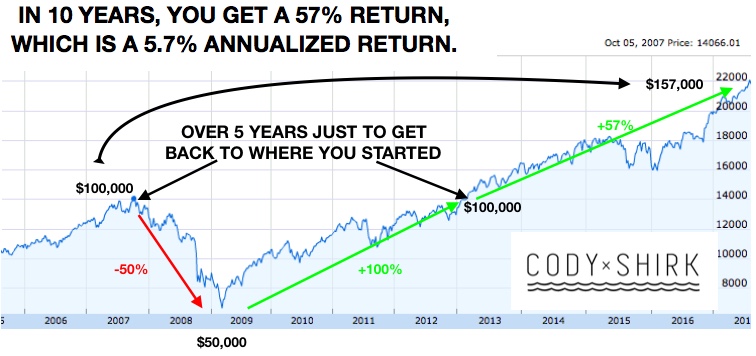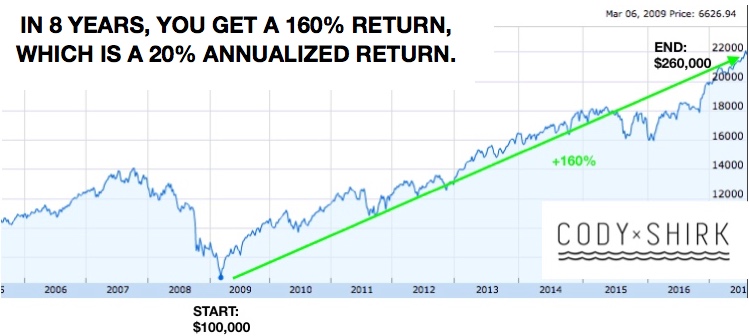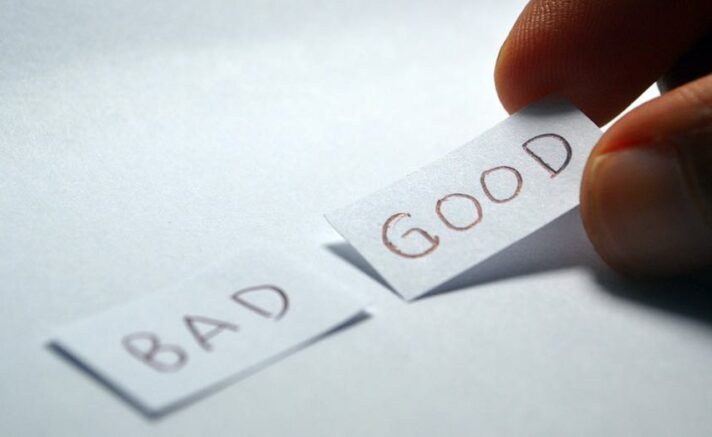Are ETFs good or bad?
2016 was a record breaking year for the ETF world. Nearly $290 billion dollars flowed into exchange traded funds.
But we’re only 8 months into 2017 and ETF inflows just passed $270 billion. If that pace continues, nearly half a trillion dollars will be invested into ETFs this year.
That’s incredible.
It makes sense why investors would do this. Popular ETFs, which track major indexes have seen massive gains since over the past several years.
$SPY is up over 160% since 2009. Instead of wasting your time trying to pick individual stocks, you can simply buy an ETF and realize tremendous gains.
Instead of wasting your time trying to pick individual stocks, you can simply buy an ETF and realize tremendous gains.
But it can’t be that simple, right?
I mean, if it was that easy to make money, then everyone would do it.
Well, everyone is starting to do this… even major funds that normally use active trading strategies. They’re turning to ETFs as a low cost option to provide returns for their clients.
So what’s the problem?
For right now, there isn’t a problem. The stock market is reaching record levels on a daily basis and ETFs correlated to these markets are making investors happy.
But, as I’ve written before, there is a risk with ETFs that investors aren’t considering.
Basically, an ETF will buy its underlying assets regardless of price or valuation.
An ETF will provide an investor great diversity among different equities, but that doesn’t mean anything if all of those equities are overvalued.
It just means that you own a bunch of overvalued stocks!
But many investors are fine with this. They justify buying into an expensive market because ‘over time it doesn’t matter.’
Here is the common thought:
You can’t time the market, so it’s better to just have exposure regardless of price. Even though you will have ups and downs, over the long term, you’ll do just fine.
But, here’s the thing… We can time the market. That’s what investing is all about.
We can’t time it exactly, but we can get reasonably close.
For example, right now in August of 2017, the stock market is EXPENSIVE on a variety of measures.
Conversely, in 2009, the stock market was CHEAP.
But, when things are going well (like right now), it’s easy to think it’s going to get even better. And when things are going bad (like in 2009) it’s easy to think it’s going to get even worse.
The way we time the market is just by looking at market cycles. We don’t know exactly when a market will bottom and we don’t know exactly when a market will top.
But, we can make some pretty accurate forecasts about the price of a market. We can determine if something is very expensive or very cheap.
Let me show you two different scenarios of investing $100,000.
#1 will be on October, 5th 2007.
#2 will be on March, 6th 2009.
Here is what the first scenario looks like:

Now, here is what the second scenario looks like:

By waiting two years to start investing, you could have made over $100,000.
Of course, that is if you timed the bottom of the market perfectly. It’s easy to see the bottom in hindsight, but at the time things weren’t so clear.
Plus, in 2009, people literally thought the entire financial system was going to collapse. That’s usually what happens during market crashes – people think the world is ending.
Today, that’s almost an unimaginable scenario. Consumer confidence is very high and the expectation is not what was felt in 2009.
So, Are ETFs good or bad?
ETFs are a great way to invest across a variety of different stocks. They usually have low fees and allow an individual investor to gain exposure to a large part of an industry.
The problem is what industry the ETF is focused on.
If you are investing in a tech ETF, then you are likely buying a lot of stocks that have extremely high valuations.
On the other hand, if you are investing in a commodities ETF, then you are likely buying a lot of stocks that have very low valuations.
So take a look at the ETFs you are currently invested in, or thinking of investing in. What are the actual valuations of the underlying assets?
Are they expensive or are they cheap? Because, if you look at the two charts above, you can see the value of buying near a bottom versus near a top.




